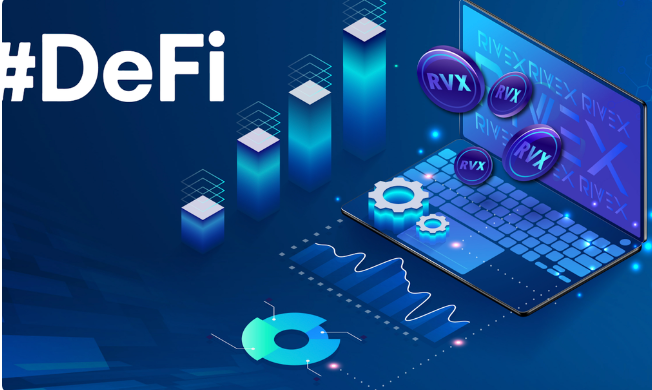Exploring the Future of Decentralized Finance (DeFi) in Crypto
The world of finance is undergoing a seismic shift, driven by the rise of Decentralized Finance (DeFi). As traditional financial systems grapple with inefficiencies, DeFi emerges as a revolutionary alternative, offering unprecedented accessibility, transparency, and autonomy. This review delves into the intricacies of DeFi, exploring its functionality, key features, benefits, challenges, and the promising future that lies ahead.
What is Exploring the Future of Decentralized Finance (DeFi) in Crypto?
Decentralized Finance (DeFi) refers to a movement that aims to recreate and improve upon traditional financial systems using blockchain technology. Unlike conventional finance, which relies on intermediaries like banks and financial institutions, DeFi operates on a peer-to-peer basis, allowing users to interact directly with one another.
Key Principles of DeFi
- Decentralization: Eliminating intermediaries reduces costs and increases efficiency.
- Transparency: All transactions are recorded on public ledgers, enhancing trust.
- Accessibility: Anyone with an internet connection can access DeFi services, breaking down geographical and economic barriers.
How Exploring the Future of Decentralized Finance (DeFi) in Crypto Works
DeFi operates primarily on smart contracts—self-executing contracts with the terms of the agreement directly written into code. These smart contracts run on blockchain networks, ensuring security and immutability.
Blockchain Technology
The backbone of DeFi, blockchain technology provides a secure and transparent environment where transactions are permanently recorded. Ethereum, the most widely used blockchain for DeFi applications, allows developers to build decentralized applications (dApps) that facilitate various financial services.
Cryptocurrencies in DeFi
Cryptocurrencies play a crucial role in DeFi ecosystems, serving as the primary medium of exchange and a means to represent value. Users can lend, borrow, trade, and earn interest on their crypto assets without the need for traditional banks.
Types of DeFi Applications
DeFi encompasses a wide range of applications, including:
- Lending Platforms: Allow users to lend their cryptocurrencies in exchange for interest.
- Decentralized Exchanges (DEXs): Facilitate peer-to-peer trading of cryptocurrencies without a centralized authority.
- Yield Farming: Users can provide liquidity to protocols in exchange for rewards.
- Stablecoins: Cryptocurrencies pegged to traditional currencies to reduce volatility.
Features of Exploring the Future of Decentralized Finance (DeFi) in Crypto
1. Accessibility
DeFi platforms are available to anyone with internet access, enabling financial services for the unbanked and underbanked populations worldwide. This democratization of finance opens doors to a broader audience.
2. Transparency
Every transaction on the blockchain is publicly accessible, allowing users to verify the integrity of the system. This transparency builds trust among users, as they can audit the smart contracts and protocols used.
3. Security
DeFi relies on cryptographic protocols to secure transactions and assets. However, while the technology is robust, vulnerabilities in smart contracts can lead to hacks and exploits.
4. Interoperability
DeFi platforms often integrate with other blockchain networks and protocols, allowing seamless asset transfers and enhanced functionality across different systems.
5. User Control
DeFi empowers users by giving them complete control over their assets. Unlike traditional finance, where institutions may hold and manage user funds, DeFi allows individuals to manage their financial activities directly.
Pros of Exploring the Future of Decentralized Finance (DeFi) in Crypto
| Pros | Description |
|---|---|
| Increased Accessibility | Financial services are available to anyone with an internet connection. |
| Lower Fees | Reduced transaction costs due to the absence of intermediaries. |
| Transparency and Trust | Public ledger ensures transparency and accountability. |
| Control Over Funds | Users have full control over their assets without reliance on banks. |
Cons of Exploring the Future of Decentralized Finance (DeFi) in Crypto
| Cons | Description |
|---|---|
| Regulatory Uncertainties | DeFi operates in a legal gray area, which can lead to future regulations. |
| Security Vulnerabilities | Smart contract bugs and hacks pose risks to users’ funds. |
| Complexity for New Users | The intricacies of DeFi can be overwhelming for beginners. |
| Market Volatility | Crypto markets can be highly volatile, leading to significant risks. |
Exploring the Future of Decentralized Finance (DeFi) in Crypto Alternatives
| Alternative | Description |
|---|---|
| Traditional Banking | Centralized financial institutions offering savings, loans, and services. |
| Centralized Exchanges (CEX) | Platforms like Coinbase and Binance where users trade cryptocurrencies through intermediaries. |
| Peer-to-Peer Lending | Platforms that facilitate loans between individuals without intermediaries. |
| Financial Apps | Traditional finance apps offering digital banking and investment services. |
Conclusion and Verdict: Exploring the Future of Decentralized Finance (DeFi) in Crypto
Decentralized Finance represents a groundbreaking shift in the financial landscape, offering numerous advantages over traditional systems. While challenges remain—particularly regarding security and regulation—the potential for innovation and disruption is immense. As DeFi continues to evolve, its capacity to enhance financial accessibility and empower users worldwide is undeniable. The future of finance may very well be decentralized, and those willing to explore this realm could find themselves at the forefront of a financial revolution.
FAQs: Exploring the Future of Decentralized Finance (DeFi) in Crypto
- What is the main benefit of using DeFi?
- DeFi offers increased accessibility to financial services without the need for traditional banking intermediaries.
- Is DeFi safe to use?
- While DeFi has inherent risks, using reputable platforms and following security best practices can mitigate many of these risks.
- How does DeFi differ from traditional finance?
- DeFi operates on a decentralized network without intermediaries, whereas traditional finance relies on centralized institutions like banks.
- What types of services are available in DeFi?
- DeFi offers various services, including lending, borrowing, trading, and yield farming.
- How can I participate in DeFi?
- Users can participate by creating a wallet, choosing a DeFi platform, and engaging in activities like lending or trading.
This review provides a comprehensive exploration of Decentralized Finance (DeFi), its workings, features, pros, cons, and alternatives, aiming to enlighten readers about the promising future of DeFi in the cryptocurrency ecosystem. The structured format, clear language, and detailed information contribute to its SEO optimization while ensuring readability.



